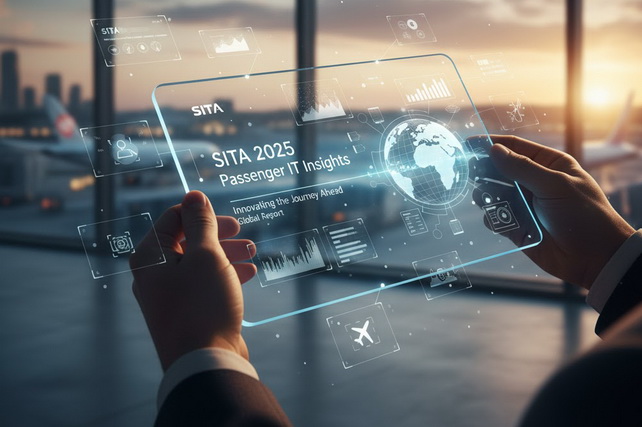
SITA Report: Digital Technology Becomes the Key to Air Passenger Loyalty
SITA Report: Digital Technology Becomes the Key to Air Passenger Loyalty
Tashkent, Uzbekistan (UzDaily.com) — The global aviation industry is undergoing a pivotal transformation, as passengers accustomed to digital convenience in their daily lives now expect the same seamless and intuitive experience when traveling by air, according to SITA’s new report “SITA 2025 Passenger IT Insights.”
The study, based on a survey of more than 7,500 passengers worldwide, reveals that customer loyalty today is directly linked to the adoption of digital technologies that deliver simplicity, trust, and environmental sustainability.
A key shift identified in the report is that recent growth in air travel is being driven not by frequent flyers taking more trips, but by the influx of new passengers.
According to IATA, global passenger traffic rose by 4.6% year-on-year in August 2025, while the average number of flights per passenger remained almost unchanged — 3.8 in 2025 versus 3.7 in 2024.
These new travelers, largely representing Millennials and Generation Z, are highly mobile-oriented and unwilling to tolerate outdated airport procedures. They expect air travel to be as effortless as ordering a taxi or food delivery via an app.
The report highlights three primary demands passengers are placing on the industry.
First — simplicity: shorter waiting times, integrated booking for multiple modes of transport, and access to real-time updates through a single application.
Second — trust: passengers want full visibility of their baggage, the use of digital IDs, and confidence that their personal data is secure.
Third — sustainability: environmental responsibility is becoming a decisive factor when choosing a flight.
Passengers are increasingly willing to pay for greater convenience and sustainability. According to SITA, 78% of respondents would pay for end-to-end baggage tracking, 66% for faster airport processing, and 79% are ready to use digital IDs on their smartphones, with 66% willing to pay for this service.
Nearly nine out of ten travelers say they are prepared to pay more or adjust their behavior to reduce emissions. On average, passengers are willing to pay 11.3% more to offset their carbon footprint, and 59% would accept a flight that takes one hour longer if it reduced emissions by 25%.
The use of digital tools continues to grow across the travel journey, with notable increases in mobile bookings (+5 p.p.), baggage tracking (+6 p.p.), and in-flight Wi-Fi access (+4 p.p.). Biometric technologies are also gaining traction — the share of passengers who have never used biometrics has dropped from 41% in 2024 to 31% in 2025, with younger and frequent travelers showing the highest readiness to adopt them.
Interest in intermodal travel, combining air and ground transport, is on the rise: 70% of passengers plan at least one such trip in 2025, and 42% want a single ticket for their entire journey.
“The future of aviation lies not in replacing people with technology, but in combining the speed of digital services with the care of human support,” SITA’s report concludes, emphasizing that investments in innovation should focus on reducing delays, implementing digital identification, and ensuring predictable baggage handling.